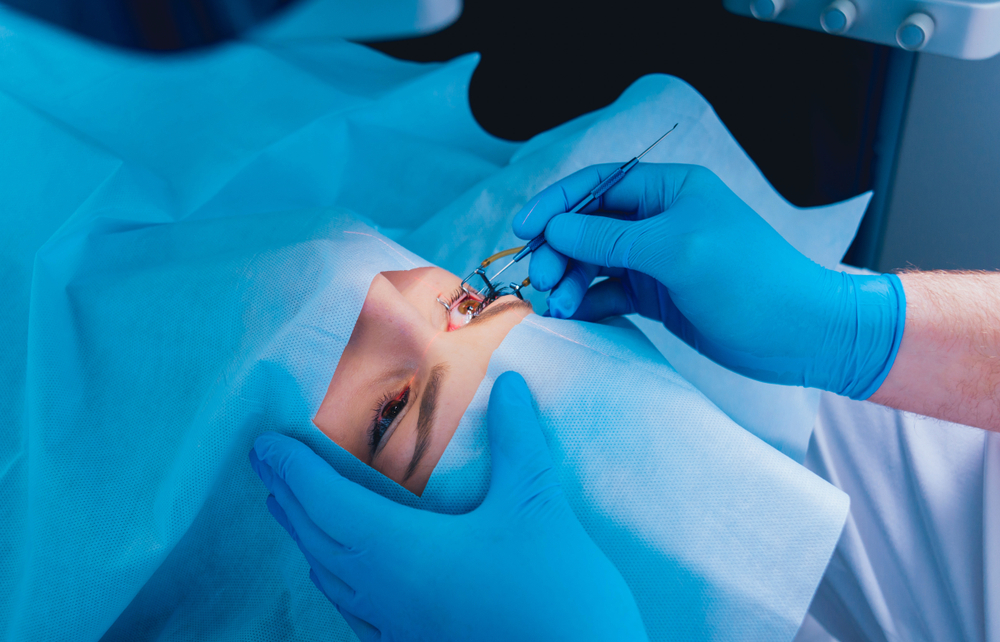
About 30% of the world’s population suffers from vision impairment. Millions of adults wear glasses and contact lenses all their lives without exploring effective treatment options. For over 20 years, LASIK eye surgery has been changing the way people see the world.
Taking advantage of this treatment makes it possible to increase your quality of life tremendously and save money on vision correction products and procedures.
If you decide to have vision correction surgery, you need to ask your LASIK eye doctor several important questions. Knowing the right questions to ask before LASIK will help you feel more confident, informed, and prepared for your procedure.
1. Am I a Candidate for LASIK Eye Surgery?
Not all people with vision problems can benefit from LASIK. To determine your candidacy for this treatment, your doctor will conduct an eye exam and review your medical history. General criteria for LASIK surgery candidates are:
- Age 18+ – usually, doctors recommend waiting for this type of surgery until the eye is fully mature. After checking your eyes, the ophthalmologist may sometimes suggest waiting until you are 21.
- Good health – to qualify for this surgery, you need to be in good general health. Patients with autoimmune diseases, diabetes, and other chronic conditions may not always be good candidates.
- Eye health – patients who have eye diseases and such conditions as glaucoma, amblyopia, and strabismus may not be suited for LASIK surgery. One of the most common disqualification parameters is chronic dry eye.
- Vision stability – your vision must be stable for at least a year before undergoing surgery.
- Cornea thickness – since LASIK eye surgery involves reshaping your cornea, it must be thick enough to withstand the procedure.
If you are pregnant or breastfeeding, an experienced surgeon is likely to recommend postponing the operation.
2. Is LASIK Eye Surgery Painful?
The LASIK procedure isn’t considered painful. In some cases, patients may experience minor pain or discomfort. If you are afraid of severe pain during the surgery, make sure to let your doctor know. They will explain the process and reassure you about the absence of pain sensation.
The majority of patients say that they feel slight discomfort and light pressure during laser eye surgery. To eliminate any unpleasant sensations during the procedure, the eye surgeon will administer anesthetic eye drops. After the laser vision correction procedure, you may feel mild pain or discomfort as the anesthetic wears off. If you follow your doctor’s advice, these sensations usually disappear within 48 hours after surgery.
3. What Does LASIK Surgery Involve?
While a complex procedure, LASIK surgery isn’t long. Usually, it takes less than 30 minutes (about 10 minutes per eye). On the day of surgery, you will arrive at the surgery center and receive clear instructions about the procedure. It will involve the following steps:
- You will lie down on a cushioned surgical bed with a headrest that limits your head movement during the surgery.
- The doctor will administer anesthetic drops. Besides reducing discomfort, the numbing drop will make it easier not to blink.
- The doctor will use a speculum to keep your eye in the correct position. The device may cause a mild sensation of pressure on the eyelids.
- The surgeon will make a small incision in the corneal tissue.
- The surgeon will guide the laser to operate in a predetermined sequence and reshape your cornea.
- Once the laser work is done, you can get up.
You will be able to see during the procedure, but you’ll experience blurred vision.
4. What Does Recovery from LASIK Entail?
It takes about three to six months to fully recover from laser eye surgery. As the healing process begins, most people notice improved vision within 24 hours after the procedure. Most likely, you’ll be able to resume the majority of your normal activities at about the same time.
To ensure a safe recovery, it’s important to follow your doctor’s advice closely.
Checkups
Your surgeon will schedule a checkup within two days after surgery. They will check your vision and prescribe medicated drops to minimize the risk of infection if necessary.
Eye Care
It’s very important to avoid eye injury for the first weeks after your surgery. Besides being extra careful, some recommendations may include:
- Putting on sunglasses during the day
- Wearing eye shields during the night
- Avoiding swimming, contact sports, and strenuous activity
- Avoiding dusty environments
- Avoiding rubbing your eyes
- Keeping lotions, makeup, and creams away from your eye area.
- Using lubricating prescription eye drops.
As your healing process ends, you can resume the normal routine. Full recovery usually happens six months after surgery. Even though your vision clarity will improve, you will still need to continue visiting eye care professionals for regular eye exams.
5. When Will I See Results from LASIK Surgery?
You will see the first results within hours after the procedure. At first, you may experience blurry vision, but it will go away in the first few days after surgery.
It may take several months after surgery for your vision to stabilize fully. During that time, you could experience halo, glare, double vision, and problems with night vision. These issues should go away within six months after the operation.
After refractive surgery, you can expect your vision to improve substantially, with more than 80% of people who undergo LASIK surgery stop using contact lenses and glasses.
6. Are There Any Risks or Side Effects Associated with LASIK Eye Surgery?
Your doctor should go over the risks and side effects of the LASIK laser correction. They may include:
- Inflammation
- Infection
- Under correction and overcorrection
- Dry eyes
- Astigmatism
- Regression
- Vision loss
Discuss the possibilities of these risks and side effects in the context of your individual contraindications and medical history. It’s worth noting that over 96% of patients are satisfied with the outcome of the operation.
LASIK Eye Surgery in Shreveport, LA
LASIK eye surgery is a highly effective vision correction procedure. Millions of people who have vision impairment can benefit from LASIK surgery and improve their quality of life. If you think you may be a candidate for this operation, contact us at WK Eye Institute today to learn more.
Image Source: Roman Zaiets / Shutterstock



